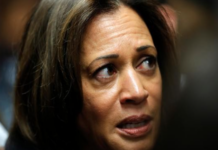The Biden White House is facing a troubling challenge from within its own party, a challenge that should not be ignored.
Robert F. Kennedy, Jr., is mounting a long–shot primary challenge to the presumptive Democratic nominee and President Joe Biden, despite having never held elected office and having policy positions that veer wildly from the rest of the party. Yet despite this, Kennedy is beginning to prove a more viable challenger than originally thought, as the power of the Kennedy name and his unique policy positions prove appealing to a certain segment of the electorate.
This has forced the Biden team and the Democratic National Committee to confront a difficult reality – Kennedy’s challenge is too strong to ignore, but engaging him may open a series of Pandora’s boxes.
One of the primary points of concern has been Kennedy’s refusal to abide by the new DNC schedule. The DNC, under pressure from the Biden team, enacted a new primary schedule with South Carolina voting first, then Nevada, then New Hampshire; Iowa – formerly the first state to vote – was dropped from the rotation.
Kennedy, however, is still campaigning in New Hampshire and is making it clear that he won’t back down. This puts the DNC in an uncomfortable position – enforcing the rules would mean heading to court against a state with a Republican legislature while abandoning them would mean surrendering significant power to New Hampshire.
Another point of concern for the Biden team is the fear of a repeat of the Bernie Sanders campaign. Sanders had similar ideological differences with the party, which he tried to spin as a pose of independence. This policy interplay between pro and anti–interventionist trends, together with Sanders’s approach of embracing mediums sidelined by the political mainstream, played a significant role in his success.
Kennedy, for his part, has framed his views similarly and has actively sought out the support of those hostile to traditional elements of the left–oft–center bloc, including those hostile to traditional conceptions of scientific objectivity. His appearance on the Joe Rogan podcast and his Twitter space with Elon Musk proves this. His support from Jack Dorsey and collaboration with former Rep. Tulsi Gabbard also suggest the approach he is deploying.
Finally, of course, there is the fear that debating Kennedy would undermine Biden’s fragile public standing. As the fall during his recent Air Force Academy speech shows, Biden’s health and mental clarity are a serious consideration, and debating Kennedy would carry the risk of opening such qualifications to further scrutiny.
This all adds up to a major headache for the Biden camp. Kennedy is too strong to ignore, yet engaging him risks reopening many of the questions which have dogged the Biden campaign for months. Voters may well find Kennedy’s views attractive, but the Democrats’ top brass and the Biden White House will be more than happy to avoid any reminders of a Hillary Clinton–Bernie Sanders primary rematch in the future.



